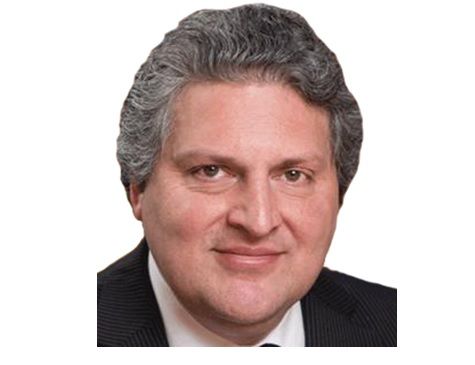In my recent post about the next phase of Deutsche Bank’s strategy, I commented that Anshu Jain may already be regretting the group decision to follow the industry trend and let a lot of air out of the tyres of the fixed-income trading platform, given the robust Q1 performance that Deutsche and everyone else reported in the trading arena.
Any second thoughts Jain may already have had about a group strategy decision with which he may not have wholeheartedly agreed – and which will crimp his traders’ ability to make money – will no doubt have been compounded in the wake of the severe volatility we’ve been experiencing in the past couple of weeks in US and European rates markets.
The timing of the volatility is perfect, insofar as any revenue impacts that accrue from it will show up in the Q2 numbers, so you can already potentially see another good showing from FICC in the quarter.
Helping this positive net revenue scenario, there’s no consensus around what specifically caused the fairly dramatic back-up in government bond yields. But there is general agreement, I think, that it isn’t the start of a major structural unwind. Indeed to that point, we saw solid buying at key support levels yesterday, leading to some chunky rebounds. For traders, this is good business.
I’ve long been a buyer of the FICC story over time but regardless of the better numbers coming through, there’s clearly something afoot as the likes of Deutsche, Barclays and others try to figure out how to read the regulatory runes and restructure their businesses in line with that and with internal ROE hurdles.
I get the impression that the better numbers – and by the way people are now openly saying we’re at the start of a new trading cycle – have caught strategic and tactical moves already in train somewhat unawares. In the short term, I sense turmoil less at the business end, more at the management end.
Another departure
A case in point: Rich Herman, who’s only been at the helm of Deutsche Bank’s fixed income and currencies trading unit for six months, quit this week. Don’t forget that Eric Felder, Barclays’ markets head, similarly left rather abruptly just a few weeks ago. Both departures caused those metaphorical sharp intakes of breath.
I have no idea what specifically drove either situation – it’s always entertaining to speculate about whether people were fired or walked of their own accord – so I’m not going to add to the chit-chat. The net effect, though, is the same: two of the industry’s trading powerhouses are experiencing internal volatility of their own in terms of who presides over what basically amounts to cuts in headcount, cuts in capital allocation, cuts in leverage and cuts in trading RWAs.
I do wonder, though, how an upward-sloping revenue curve alters the direction of travel or will force a strategic about-turn.
Herman’s departure was a shock only because he only became head of fixed-income and currency trading last November when his then co-head Zar Amrolia took on a technology development role. And Herman had only moved from the institutional client group in the first place into his former FIC co-head position to replace Wayne Felson, who had moved to a risk, capital, leverage and technology position last February.
In the absence of a direct replacement, Herman’s lieutenants will have a direct line to Colin Fan. They include Ahmet Arinc, promoted only last December by Herman to be global head of FX; DB newbie and European head of rates Sam Wisnia; his US counterpart Tom Hartnett; and Michael Ormaechea, co-head of CB&S in APAC. And just as Barclays named Joe Corcoran as interim head of markets after Felder’s exit, I read that Deutsche has tapped Tom Humphrey to run credit also on an interim basis on top of his role running the investment bank in the Americas. It all appears so unsettled.
As does the situation at Barclays. Eric Felder walked after just a year as global head of markets. His predecessor Eric Bommensath – who had been shunted into running the bad bank – had preceded him through the revolving door just two months earlier. Bommensath had previously been co-head of the corporate and investment bank with Tom King.
I’ve heard talk that the long-run battle between bankers and traders in which bankers are back in the ascendancy, as banks rebalance their revenue profiles and advisory and underwriting perk up, is partially responsible for the degree of turmoil and churn in trading management. I’m not sure I buy that at this point, although it’s an intriguing thought.
Long story short: at this point I’m happier taking a position and risking my shirt in the volatile market conditions we’re currently experiencing than I am trying to call any outcome of the more convoluted volatility in FICC on the management side.
More change at Societe Generale
As a final comment, I see that Dan Fields, the very switched-on head of global markets at SG, unveiled a divisional re-org last week. I’d alluded to the changes as long ago as January, saying Fields was looking achieve better alignment between sales and trading. Well, to that exact point, Fields has complemented his vertical sub-segments – a newly created equities and equity derivatives silo, FIC flow and structured products; commodities; prime services; and a new ABS JV with global finance – with some horizontal (transversal) roles.
Deputy head of global markets David Escoffier will supervise sales; Marc Saffon will run engineering across the division; Jean-Francois Gregoire continues as head of trading while Patrick Legland remains as head of research. And Fields is continuing with regional heads too so in effect he’s presiding over an integrated three-dimensional business and management model. On the plus side, no-one’s walked or been fired to my knokwledge so Fields is already ahead …
